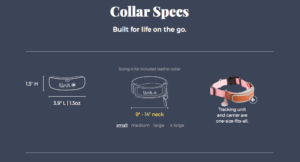Ireland to be the first IoT Island! It looks as though Ireland will become the first smart island....
Farming of the Future: Localizing Food Production Through IoT

Boston startup Freight Farms is working to connect people in the food industry through technology.
Typically sunless parking lots and old shipping containers don’t conjure up imagery of rows of fresh, crisp produce, but then again, there’s nothing typical about Freight Farms. The Boston-based B2B startup, is seeking to help customers in urban areas localize their food production through an Internet of Things product. Essentially a farm in a box, the Leafy Green Machine (LGM) is a retrofitted shipping container that allows customers to grow hydroponic crops remotely, as well as monitor and control their environment via a mobile application. Although cofounders Brad Mcnamara and Jon Friedman got their start in greenhouse design and implementation, they quickly realized that no one in the industry was taking full advantage of advances being made in LED technology. Brad and Jon highly valued the power of food independence, so they set out to build a prototype that would empower customers to grow fresh food anywhere from their backyards to a parking lot.
The Bigger Picture
Since Freight Farms got its start in 2009, it has been a part of a growing movement to bring IoT into the agricultural sector. According to Venture Beat, Agricultural IoT is among the most innovative (and well funded) IoT sectors in the industry. In the third quarter of this year alone, venture capitalists invested nearly $270 million USD in agricultural and food startups (who ever said you can’t grow money on trees!) The most common use cases of IoT in Smart Agriculture include livestock monitoring, conservation monitoring, and plant and soil monitoring. Aside from the convenience of remote monitoring. Mcnamara and Friedman’s LGM provides a number of other solutions to global challenges such as climate change and food insecurity. According to a 2012 report by the Food and Agriculture Organization (FAO), food production will have to double by the year 2050 in order to feed our growing population. The use of technology can help sustainably increase yields without converting more land into farmland.
Hydroponics, the technology used by Freight Farms, allow for year-round crop production, eliminate weather-related crop failures and agricultural runoff, facilitate ecosystem restoration, don’t rely on pesticides, herbicides, or fertilizers, and use 70-95% less water than conventional farming methods. Hydroponics also enable people to grow food in urban centers, resulting in increased transparency and food independence, and reduced food miles. Ultimately the use of cutting edge technology in the sector makes farming appealing to a new generation of farmers by enhancing user experience and addressing global issues such as water scarcity, and food insecurity.

